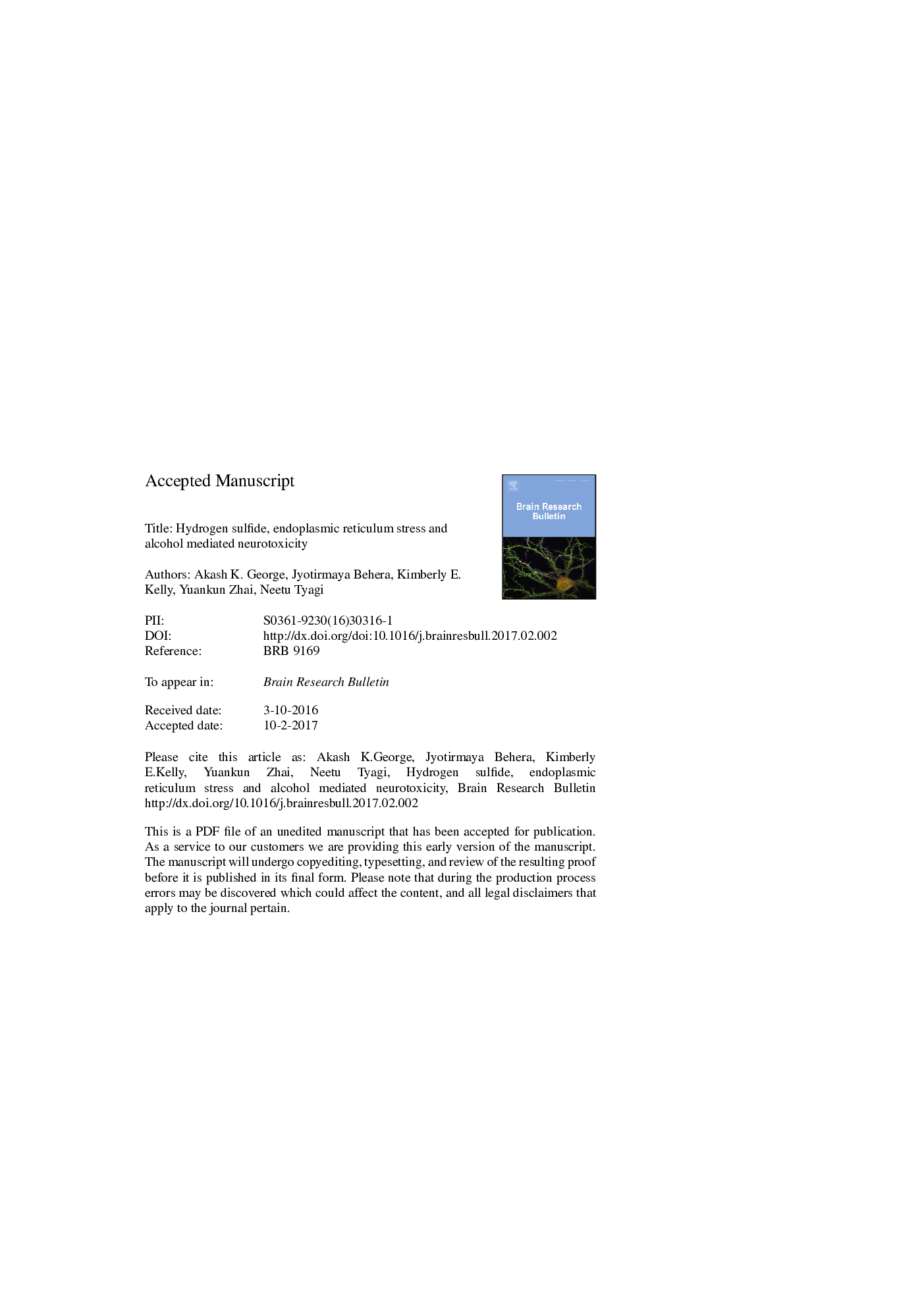| Article ID | Journal | Published Year | Pages | File Type |
|---|---|---|---|---|
| 5736352 | Brain Research Bulletin | 2017 | 24 Pages |
Abstract
Alcohol is one of the most socially accepted addictive drugs in modern society. Its abuse affects virtually all organ systems with the central nervous system (CNS) being particularly vulnerable to excessive alcohol exposure. Alcohol exposure also causes profound damage to both the adult and developing brain. Excessive alcohol consumption induces numerous pathophysiological stress responses, one of which is the endoplasmic reticulum (ER) stress response. Potential mechanisms that trigger the alcohol induced ER stress response are either directly or indirectly related to alcohol metabolism, which include toxic levels of acetaldehyde and homocysteine, oxidative stress and abnormal epigenetic modifications. Growing evidence suggests that H2S is the most recently recognized gasotransmitter with tremendous physiological protective functions against oxidative stress induced neurotoxicity. In this review we address the alcohol induced oxidative stress mediated ER stress and the role of H2S in its mitigation in the context of alcohol neurotoxicity. Interruption of ER stress triggers is anticipated to have therapeutic benefits for alcohol mediated diseases and disorders.
Keywords
CBSBHMTHcyATF6MTHFRIRE1UPRHHcyinositol-requiring enzyme 1amyotrophic lateral sclerosisALSHuntington’s diseasetHcyCNScystathionine β-synthasecentral nervous systemendoplasmic reticulumactivating transcription factor 6methylene tetrahydrofolate reductasehomocysteineHyperhomocysteinemiaUnfolded protein responsePERK
Related Topics
Life Sciences
Neuroscience
Cellular and Molecular Neuroscience
Authors
Akash K. George, Jyotirmaya Behera, Kimberly E. Kelly, Yuankun Zhai, Neetu Tyagi,
